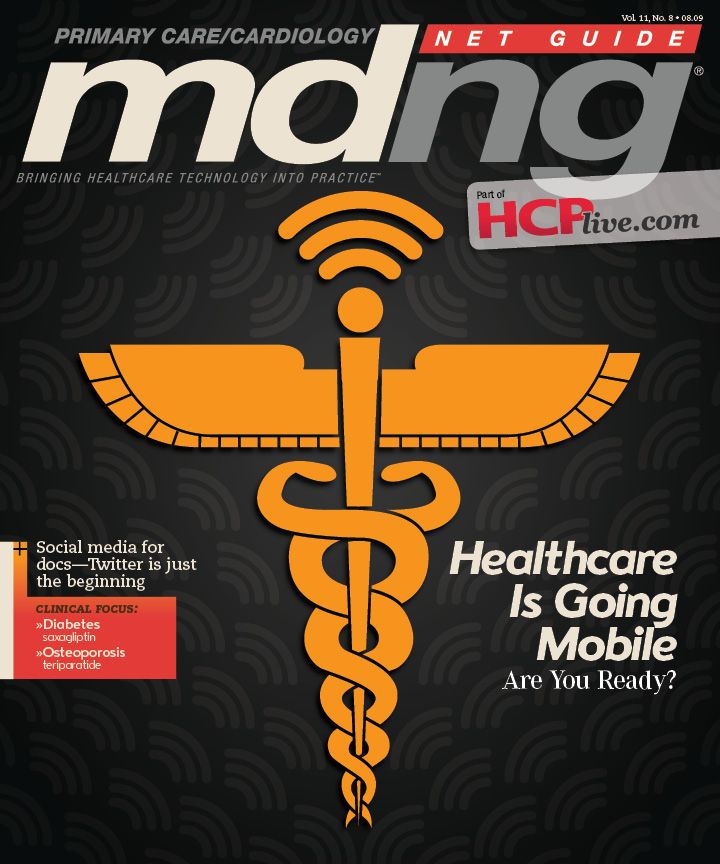Mobilizing Healthcare
In this month's Tech Talk column, MDNG editorial board member Jonathan Bertman, MD, acknowledges the growing popularity of smartphones among his physician colleagues, touting their usefulness for on-the-go physicians who need Internet and e-mail access.
MDNG
In this month’s Tech Talk column, editorial board member Jonathan Bertman, MD, acknowledges the growing popularity of smartphones among his physician colleagues, touting their usefulness for on-the-go physicians who need Internet and e-mail access. But he also sounds a note of caution, saying that proponents who claim that smartphones will be the long-awaited catalyst for widespread EHR adoption are jumping the gun. He says that smartphones’ physical limitations—tiny screen and keyboard—coupled with the workfl ow-stifl ing need to click through many screens and menus in order to document a clinical encounter (to say nothing of the frustrating process of typing more than a few words of text into a note) are a signifi cant barrier to adoption. If other providers agree with him, and also share Dr. Bertman’s reluctance to e-mail patients (due to the lack of compensation for his time and concern over unresolved medico-legal risks), then perhaps smartphones will remain little more than beefed-up versions of the PDAs they supplanted--useful and capable in their own right, but stuck as standalone devices for physicians.
Peter Waegemann, executive director of the mHealth Initiative, has a different vision. He has been touting the benefi ts of using smartphones and other mobile technology in healthcare for years, claiming these technologies will be “the future conduit of interoperability for essential health information.” The mHealth website paints a picture of smartphones and other mobile devices at the center of an accessible, interconnected health system. Users will be able to “store their personal health information safely and securely on their phone in order to share it with authorized healthcare professionals when healthcare services are needed.” When healthcare goes fully mobile, patients will be able to “[look] up a specifi c medication after it has been prescribed at a clinic visit, [note] it interacts with another of their medications that they failed to mention during their visit and [alert] the clinic physician--also via the cell phone--before having the prescription fi lled.” Physicians, too, will benefi t. They will be able to “access protocols at the point of care and/or other professional information that is available on the Internet while with a patient or away from their desk.”
Journal of the International Psychological Society
Which vision will come to pass? Will advances in smartphone technology assuage concerns over data security and privacy? Will these devices usher in a new era of patient—physician communication and collaboration, or will they play only a minor role in healthcare? It’s already apparent that effective mobile technology applications can help patients manage chronic diseases by sending them educational information, medication reminders, and other prompts (just one example: A study in the July issue of the found that smartphones can provide valuable support for patients with memory impairments). The question is whether physicians can derive similar benefi ts in terms of convenience and effi ciency.
Do you currently use your smartphone for more than just simple communication and administrative tasks? If so, what applications do you use, and what convinced you of the clinical utility of integrating your phone into daily practice? Skeptics: tell us why you think mHealth’s goal of a “new health ecosystem” based on mobile devices won’t work.
Thank you for reading.
Mike Hennessy
